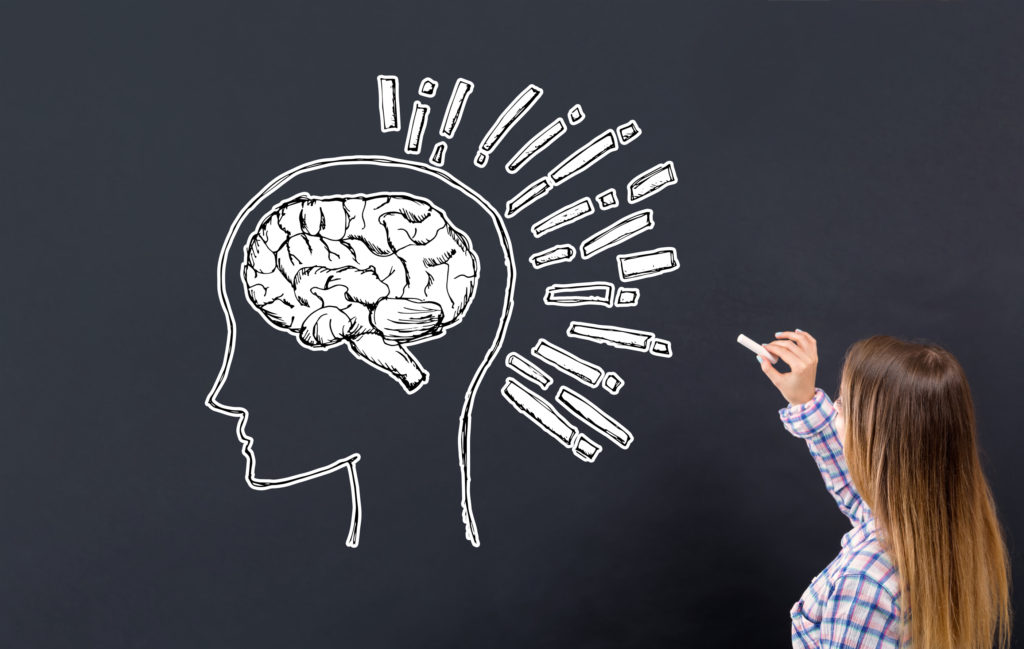Quick Hits
Daily brief research updates from the cognitive sciences

Learning and memory are key functions of the brain and ones that attract a lot of attention and research – and interest from normal folk like us. After all who wouldn’t like to know how to use one’s brain to learn and remember things better.
These two functions are, however, closely related. Memorising things is a part of learning – so are they part of the same process or part of separate processes in the brain? And does this happen in parallel or sequentially?
Most of us would probably assume that they happen in parallel – lots does in the brain – it is pretty complex. Similarly disentangling these processes is difficult – when we go about things in daily life we are drawing on our memories as we encounter familiar things and do familiar processes but when we encounter novel things we then need to learn and this seems to happen seamlessly
Researchers around Ruy Gómez-Ocádiz of the Insitut Pasteur in France have now given insight into this with some pretty innovative research.
For this they transported mice to a virtual world – yup, you read that correctly – researchers are now using virtual reality with mice! I will let you imagination run with that thought. This allows researchers to guide what the mice see and experience with more accuracy and therefore draw firmer conclusions. In this research it allows them to manipulate and distinguish between learning and remembering by transporting them to a whole new world so they can see learning in action.
What did they find?
Yes, they found that there is separate circuit in the brain’s hippocampus that switches between learning or remembering – the hippocampus is a well-researched area deep in the brain that is critical for memory formation but also memory recall and for navigation.
This shows that your brain therefore switches, sometimes rapidly between modes. When you encounter novelty it switches to learning mode and when in familiar territory you are in remembering mode.
And going through this article it probably switched a few times – but hopefully the learning mode also so that you remember this for later!

Andy Habermacher
Andy is author of leading brains Review, Neuroleadership, and multiple other books. He has been intensively involved in writing and research into neuroleadership and is considered one of Europe’s leading experts. He is also a well-known public speaker, speaking on the brain and human behaviour.
Andy is also a masters athlete (middle distance running) and competes regularly at international competitions (and holds a few national records in his age category).
References
Ruy Gómez-Ocádiz, Massimiliano Trippa, Chun-Lei Zhang, Lorenzo Posani, Simona Cocco, Rémi Monasson, Christoph Schmidt-Hieber.
A synaptic signal for novelty processing in the hippocampus.
Nature Communications, 2022; 13 (1)
DOI: 10.1038/s41467-022-31775-6
More Quick Hits
Groovy Music Improves Brain Performance
Quick HitsDaily brief research updates from the cognitive sciences et into the groove… or so sang Madonna with her hit single in 1985. Little did she know at the time but getting into the groove certainly does seem to be beneficial for you - not to...
Even Moderate Alcohol Consumption Linked to Brain Decline
Quick HitsDaily brief research updates from the cognitive sciences he tide seems to have turned on alcohol. Though we have always known that excessive alcohol consumption is negative there were for a long time inconsistencies with the research into...
Flu Vaccination Dramatically Lowers Risk Of Alzheimer’s
Quick HitsDaily brief research updates from the cognitive sciences am always interested in headlines that are related to brain health. And though Alzheimer’s is a long way off for (hopefully) me, this still struck me as interesting. For me this...
How Mindfulness Meditation Reduces Pain
Quick HitsDaily brief research updates from the cognitive sciences indfulness meditation has been shown to be beneficial for many things such as lowering stress, increasing wellbeing but also making better decisions and being less biased. Not bad....
You Smell Like Your Friends
Quick HitsDaily brief research updates from the cognitive sciences e all know that dogs like to sniff each other - often in "delicate" parts of their body. We also know that many other animals have very good sense of smells. But in our daily lives,...
Social Interactions Define Your Sense of Purpose
Quick HitsDaily brief research updates from the cognitive sciences aving a sense of purpose is a pretty good thing to have because it seems to correlate with multiple health and life satisfaction measures. If you have a healthy sense of purpose you...






